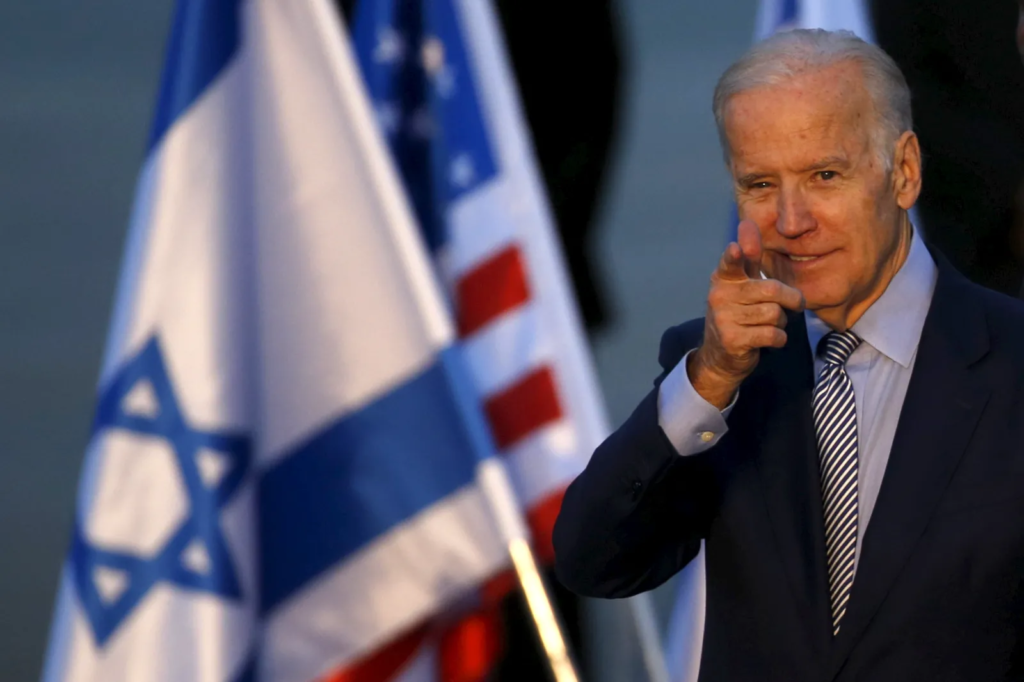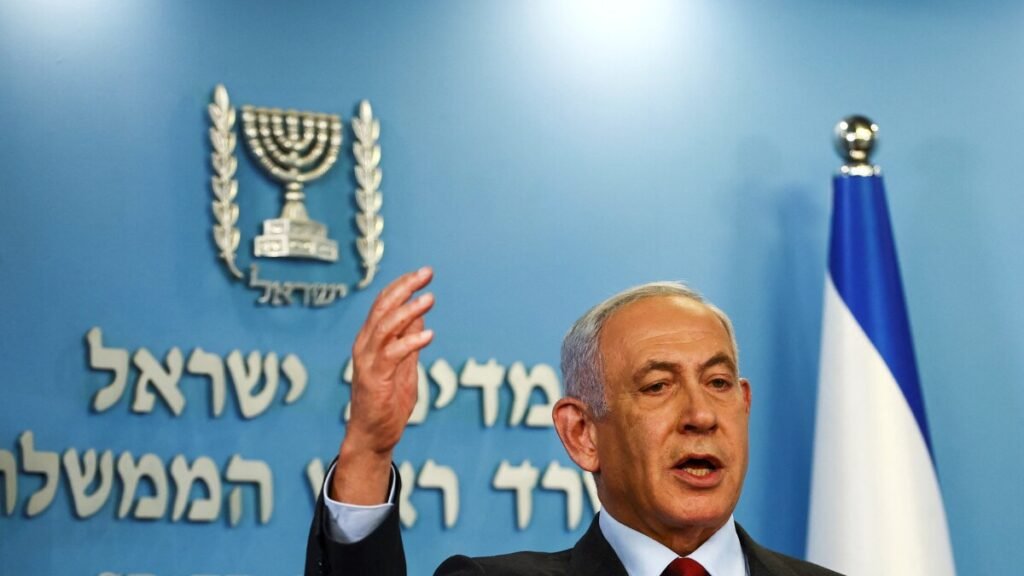On April 13, 2024, Iran launched a significant assault on Israel, deploying over 300 drones and missiles in response to Israel’s recent provocations in the region. That same day, U.S. President Joe Biden returned hastily to Washington from Delaware, signaling a sense of crisis within the administration. As the situation escalated, Biden convened his National Security team in the White House’s Situation Room to deliberate on the implications of this Iranian counterstrike.
Publicly, Biden reaffirmed America’s “ironclad” support for Israel, pledging to defend it against perceived Iranian threats. However, within closed-door meetings, the administration wrestled with the broader risks of direct U.S. involvement in a regional conflict. Biden, already grappling with declining domestic support ahead of the upcoming November elections, faces the real possibility that a wider war could have devastating effects on the U.S. economy and further complicate his reelection campaign.
Although some within Biden’s administration are eager to take a hardline stance against Iran, the President has so far attempted to navigate a cautious path, balancing staunch support for Israel with a desire to avoid outright military confrontation with Tehran. Since the outset of Israel’s campaign in Gaza, Biden’s reluctance to directly engage Iran has come up against rising regional tensions and mounting pressure from Israel’s Prime Minister, Benjamin Netanyahu.
Escalating Conflict and the Calculations Behind Iran’s Response
This Iranian offensive comes in the wake of a targeted Israeli strike on April 1, which hit the consular section of Iran’s embassy in Damascus, killing seven Iranian nationals, including high-ranking officers. Netanyahu’s strategy is clear: by provoking Iran, he aims to draw the United States into a broader regional conflict. Amid an escalating and brutal offensive in Gaza, Netanyahu is facing increased opposition at home. Widespread protests have called for early elections, threatening Netanyahu’s political future. He has effectively exhausted his military options in Gaza, with much of the region in ruins and his forces withdrawing from most areas, leaving only the southern city of Rafah as a potential target.
The targeting of Rafah has sparked international condemnation, pressuring the U.S. to discourage Israel from escalating further. Faced with dwindling options, Netanyahu has turned his attention toward Iran, hoping to incite a reaction that would compel the U.S. to intervene directly on Israel’s behalf.
Tehran, wary of full-scale conflict with the U.S., responded to Israel’s provocations in a calculated manner. While the Iranian assault may appear overwhelming, it was primarily intended as a message rather than a declaration of war. Most of the projectiles deployed were basic Shaheed drones designed to test Israel’s defenses. The Iranians, anticipating a retaliatory strike, made sure to minimize damage and casualties by issuing advance warnings to both American and Israeli forces, thereby allowing defenses to intercept most of the drones and missiles.
Netanyahu’s Strategic Calculations
For Netanyahu, this situation serves as a high-stakes political gambit. By escalating hostilities, he seeks to rally domestic support and draw the U.S. into the conflict. The April 1 strike on Iranian diplomatic facilities was a calculated provocation, targeting what Iran would consider sovereign territory, thus ensuring a response. This chain of events is not accidental; Netanyahu needs the U.S. to back Israel in a regional confrontation to stabilize his own political standing.
While Biden’s administration privately cautioned Israel against further escalation, the ultimate effectiveness of these appeals is uncertain. Netanyahu, determined to shift attention from his struggles at home, appears willing to risk regional stability to achieve his objectives.

The Geopolitical Tensions of the Middle East
Iran’s response underscores the double standards prevalent in the so-called “international community.” Despite the absence of any evidence linking Iran to recent Hamas attacks, Israel has continued to pressure Tehran with unprovoked assaults, such as the Damascus strike. The U.N. has remained largely silent on these provocations, with no resolutions condemning Israel’s actions. This silence has emboldened Netanyahu’s administration, which faces little accountability from Western allies.
For its part, Iran initially took the matter to the United Nations, invoking Article 51 of the U.N. Charter to justify self-defense. Despite these diplomatic efforts, vetoes from the U.S., Britain, and France thwarted any U.N. condemnation of Israel. This lack of international support left Iran with no alternative but to retaliate.
Despite the scale of its response, Iran’s restraint was evident. By employing Shaheed drones rather than its more advanced missile arsenal, Iran aimed to send a symbolic warning to Israel while avoiding a full-scale assault. The Iranian mission to the U.N. later stated, “This matter can be deemed concluded,” signaling a desire to de-escalate unless Israel provokes further confrontation.
Regional Tensions and Western Hypocrisy
The Iranian response has prompted a predictable backlash from Western leaders. British Prime Minister Rishi Sunak condemned Iran’s “reckless” attack, blaming it for destabilizing the region, while U.K. officials increased their military presence in the Middle East. Similar statements from U.S. and European Union leaders followed, with little mention of Israel’s initial strike on Damascus. The selective condemnation exposes the West’s double standards, revealing a pattern of unwavering support for Israel, regardless of its actions.
Meanwhile, Tehran has cautioned neighboring nations that any interference with Iranian operations will be met with retaliation. Amidst this tension, Jordan, initially willing to intercept Iranian drones, has reversed its stance, publicly denying any involvement. The increased U.S. and British military presence, combined with ongoing tensions, leaves the Middle East in a precarious state, with no clear path to de-escalation.
Balancing Support and Avoiding Escalation
For Biden, the challenge now lies in balancing his administration’s unwavering support for Israel with the pressing need to prevent a regional conflict. The Biden administration finds itself caught between longstanding alliances and the risk of a conflagration that could spiral out of control. American diplomats are scrambling to perform a delicate balancing act, as Biden’s pledge of support for Israel clashes with the strategic need to prevent a broader war.
A major concern for the U.S. is the potential for popular uprisings in pro-Western Arab nations, should hostilities continue to escalate.

Arab allies, such as the Gulf states, have cautioned the U.S. against using their airspace or bases for operations against Iran, reflecting a growing wariness among regional powers about becoming embroiled in the conflict.
As tensions simmer, the Biden administration faces a high-stakes decision. With the flames of conflict threatening to engulf the region, the U.S. must decide how far it will go to support Israel without sparking a catastrophe that could destabilize not only the Middle East but also global security.

